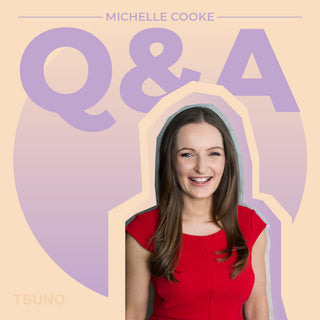PCOS or Polycystic Ovarian Syndrome is a 'syndrome' which means that there can be a collective of numerous symptoms and signs which vary from person to person. No two individuals with PCOS present the same. It is a complex condition that is multi-glandular, where more than one endocrine (hormone) producing gland is involved. It is like a 5-legged stool (just imagine that there is such a thing) involving the pancreas, adrenals, thyroid, pituitary and ovaries.
If you have PCOS you may have the following (you may have some or all of these 'fun' things): irregular periods, heavy periods, absent periods, weight gain around the middle, acne, mood changes, depression, thinning of hair on head, darkening of skin (nerdy name is acanthosis nigricans), feeling exhausted, issues with sleep, hirsutism (hair) on your belly like a 'snail trail', chin, upper lip, nipples, boobs. The interesting thing is you can have Polycystic Ovarian Syndrome and not have Polycystic Ovaries (crazy but true!).
PCO or Polycystic Ovaries is not the same as PCOS. PCO is a reproductive issue characterised by multiple cysts on the ovaries (partially mature follicles). The diagnostic criteria of PCO: based on the Rotterdam Criteria of 12 or more cysts of 2-9mm. It is also more common than PCOS, with 1 in 4 women experiencing PCO vs 1 in 7 women experiencing PCOS.
There are two different types of PCO where some women experience normal length menstrual cycles ( < 35 days) vs. others who experience a longer menstrual cycle (>35 days) and have signs and symptoms of hyperandrogenism (a fancy word for too much testosterone). PCO can occur due to a few different reasons; the ovaries are stimulated to produce too many androgens (mainly testosterone) and / or there is too much oestrogen relative to progesterone (oestrogen dominance). The egg is not released (through ovulation) because it has not matured, so then a cyst forms.
Some recent research suggests that the common ground between PCOS and PCO is that they can potentially both have high insulin (the nerdy word is hyperinsulinemia) and insulin resistance (where insulin is not working properly). However, not all researchers seem to be on the same page with this concept, some believe that it is only SOME women with PCO that may experience insulin resistance. If women do have high insulin, it impacts girly hormone balance and as a result they do not ovulate which leads to dun, dun, dun…cyst formation. An ovarian cyst arises because the follicle didn’t get the chance to mature properly. The eggs are all dressed up with no-where to go stuck within the confines of the ovary.
PCOS is not a new condition, we have just come to more of an understanding over time into the complexity of this syndrome. Can you believe that PCOS was discovered back in ye' olde times in 1935 by Dr Stein & Dr Leventhal and they came up with the very inventive name of Stein-Leventhal Syndrome. But they need not take all the glory, because even before that Scientists and Greek Physicians like Hippocrates back in 400b.c. spoke of women who had more masculine type features (excess hair growth) and their periods ceased.
So, there you have it; disorders that resembled PCOS have been around for quite some time now. In the last century they discovered that the hormonal origin of the condition resides in the ovaries. Dr Futterweit was involved heavily in the study and understanding of PCOS for four decades. Dr. Futterweit published a medical textbook in 1984 for medical and health professionals. In the past 20 years we have come to the understanding that the pancreas is heavily involved in the syndrome; insulin resistance (insulin is not working properly), hyperinsulinemia (too much insulin, the body produces more to try and 'mop' up the glucose that is not being piggy-backed by insulin into your cells where it is used) and glucose intolerance. We still continue to learn more about Polycystic Ovaries and Polycystic Ovarian Syndrome as the years fly by.
You may have trouble trying to conceive when you have PCOS, due to the high levels of insulin (hyperinsulinemia) and insulin resistance driving hormonal chaos. This contributes to high levels of hormones such as testosterone being produced from the ovaries and adrenal glands. And as if insulin has not caused enough of a ruckus, it also reduces the production of Sex Hormone Binding Globulin (SHBG). SHBG usually mops up excess testosterone on the loose. The testosterone population flourishes.
Some of that testosterone converts to oestrogen (nerdy word: aromatisation) so there is more oestrogen floating around too. High levels of oestrogen then tell your pituitary gland to stop producing FSH (follicle stimulating hormone), this hormone assists with proper development and maturation of your follicles. If a follicle doesn’t develop and mature to be a grown-up follicle (dominant follicle) there is none there to ovulate. If ovulation isn’t happening, then there is no ovum (egg) released. Without that, there is no egg to be fertilised and conception can’t take place. In women with PCOS, ovulation either does not take place (anovulation) or it occurs infrequently (oligoovulation); either way it can be difficult to pinpoint the fertile time.
PCO still has the potential to impact your ability to conceive, depending on what scenario you have going on: If your cycle is longer than 35 days, high testosterone, high insulin or high oestrogen which at the end of the day all could impact whether or not your follicles develop to full adulthood and whether ovulation takes place.
For PCOS, this is a tricky one to answer as each presentation can be different from woman to woman so more investigation would be required to find out what the drivers (there are usually more than 1) are for your particular PCOS.
A team of health professionals is generally required for management of PCOS – Reproductive Endocrinologist or Gynaecologist, Hormone & Fertility Naturopath. For PCO, there can also be variable presentations, so again further investigation is required to determine exactly what is happening for that individual by a reproductive health practitioner.
Something to keep in mind is that a potentially common theme between PCOS and PCO could be insulin resistance, high insulin levels (hyperinsulinemia), high glucose levels and inflammation. So, one big way to manage both scenarios, is to address these factors (but keep in mind there is a lot more than meets the eye).
A good way to manage PCOS and PCO is through diet and lifestyle. Regardless of whether you have insulin issues or not in PCO these are still great ways to keep your hormones balanced:
- Avoid sweet foods and refined foods that will increase glucose and insulin levels drastically: lollies, ice cream, chocolate, cakes, juice, soft drink, white bread, white pasta.
- Avoid foods that increase the fire (inflammation): red meat, deep fried foods, cow’s dairy (milk, cheese etc.).



